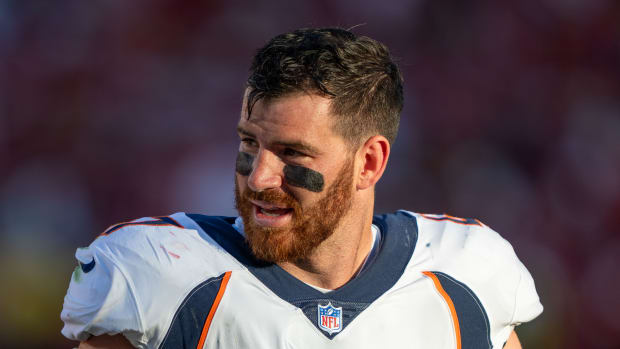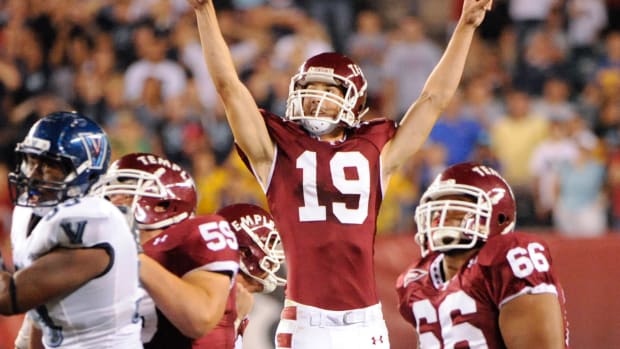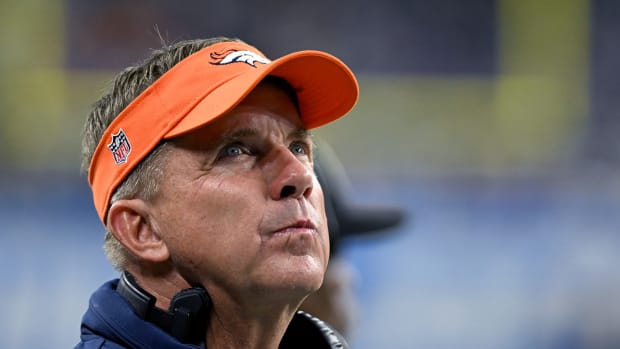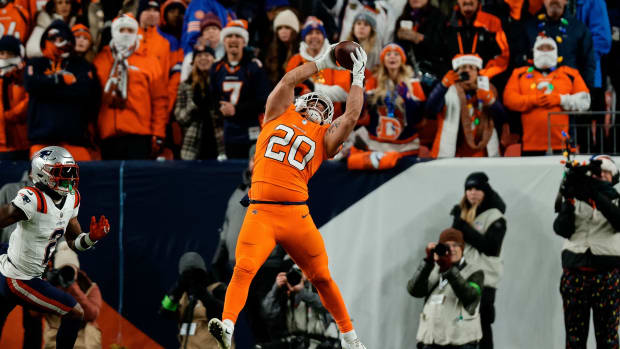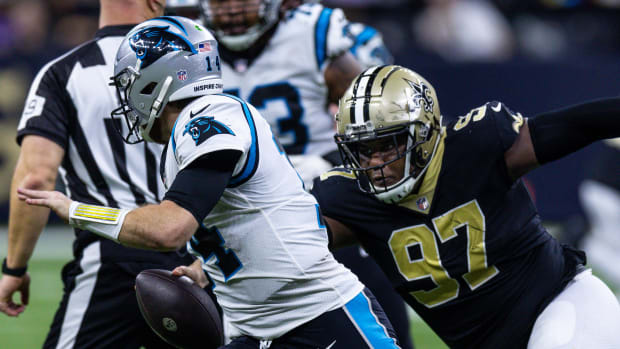How Broncos' Salary Cap & Contracts in Free Agency Could be Affected by Possible CBA Changes in 2020
Negotiations continue toward extending the NFL's Collective Bargaining Agreement — which expires after the 2020 season — but, until that CBA is extended, the free agency playing field could look different in terms of how contracts and the salary cap are approached.
Jason Fitzgerald at Over the Cap outlined a few things to keep in mind regarding 2020 as they pertain to the cap and contracts. These conditions will apply unless the CBA is extended prior to the start of the 2020 NFL league year in March.
A few of these items will impact the Denver Broncos, though a couple might not matter as much as they will other teams. Because the Broncos have an estimated $61.9M in cap space, based on a projected base team cap of $200M (keep in mind the Broncos carried over some unused space from 2019), they aren't as likely to have utilized unusual structures to work contracts under the cap or to comply with certain rules.
But unless the CBA is extended in the coming weeks, there will be a few things to keep in mind as to how the Broncos will approach the cap. Let's look at the items Fitzgerald reviewed and how they may impact the Broncos.
No Post-June 1 Cuts
The only concern here for the Broncos is QB Joe Flacco, who is expected to be released or traded. Bear in mind that, even if the CBA is extended before the start of the new league year, that the Broncos would still take the entire dead money charge of $13.6M if they trade him before June 1. While cuts may be designated post-June 1 if the CBA is extended, trades take immediate effect.
Teams may use both a Franchise & a Transition Tag
Though the Broncos will have both tags available, they aren't likely to use both. S Justin Simmons could get the franchise tag (about $12M for safeties) if he isn't extended before the start of the new league year. But the transition tag will be an expensive option for certain players the Broncos may want to retain.
For defensive linemen, the transition tag is expected to be about $16M, which is a steep price to keep either Derek Wolfe or Shelby Harris. All offensive linemen get the same tags, regardless of the position they play, meaning the estimated $14M for those players under the transition tag is too high for Connor McGovern.
The transition tag for cornerbacks is about $14M, but it's highly unlikely that the Broncos will use that designation for Chris Harris, Jr. With him, it's going to be either an extension or he will move on.
As for players who Broncos fans might like to see the team pursue, a few teams could utilize the transition tag along with the franchise tag. The Cowboys are expected to franchise Dak Prescott and put the transition tag on Amari Cooper.
The Titans could easily give the franchise tag to Ryan Tannehill and the transition tag to Derrick Henry. The Buccaneers could use both with Shaquil Barrett and Jameis Winston hitting free agency — if so, Barrett is the better franchise tag option while the transition tag should be enough for Winston, who is a risky player to give a contract that the Bucs won't want to match.
As always, there will be players who Broncos fans may want who get tagged by their current teams, but in the case of teams using both, it's not likely they will be on players who top the Broncos want list.
The 30 Percent Rule for Future Cap Hits
The rule is in place to prevent teams from dumping huge amounts of cap into what may be an uncapped year in the future. A player may not get a raise of 30 percent more than his 2020 cap charge, minus the pro-rated signing bonus.
For the Broncos, this may not be an issue because the Broncos try to keep signing bonuses as small as possible and put more money into base salaries, particularly when it comes to players who get the franchise tag. For Justin Simmons, this would mean he will likely get a base salary of at least $10M, because that allows his 2021 base salary to hit $13M.
The Broncos could go a little higher on the 2020 base salary, depending on the total amount of the contract. Given that the Broncos have a lot of cap space, they can afford to put more money into base salaries in the first year's cap hit.
Incentives Count Toward the 2020 Year
In past seasons, the Broncos have converted base salaries of certain players into incentives, usually to get more cap space. However, if they do that this year, any incentives earned count toward 2020.
I don't see the Broncos necessarily utilizing incentives for most players, though there may be a couple of instances in which it happens. I certainly don't expect one tactic they've used with incentives, in which they renegotiated a current player's contract and gave what actually amounts to a pay-cut, because there's no guarantee the player will earn the money.
Void Years May be a Problem
Flacco's contract does have void years at the end of his deal, but those will be counted for in the entire dead money charge he will have once released. As I've stated before, it's not ideal but it won't harm the Broncos' cap situation.
Other teams, though, could have a problem. The Saints have used void years often with Drew Brees' contract and might have to do so again if they bring him back. That means they keep kicking the cap can down the road and could harm their ability to improve the team in future years.
As Fitzgerald explained, it's more likely Brees gets a two-year deal that allows the Saints an 'out' in case they need to move on from him after 2020.
The Second Salary Cap Adjustment
I will refer to you Fitzgerald's article for the explanation, but I will say that's not something the Broncos (or any other team) should put all their chips on. In the Broncos' case, they have plenty of cap space to work with, so they should just focus on fitting contracts into the cap space they have and not worry about whether or not that second adjustment will happen.
Cap Carryover in 2021?
As Fitzgerald explains, there's no guarantee that cap carryover will be allowed for 2021. I think the Broncos will simply utilize as much cap space as they can in 2020 but leave a small amount of wiggle room for players they need to add during the season because of injuries. That's no different from how the Broncos have approached things in past seasons.
Follow Bob on Twitter @BobMorrisSports, Erick on Twitter @ErickTrickel, and @MileHighHuddle.

